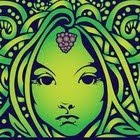
Vince Maloney, Johnny Dick, Teddy Toi and Doug Parkinson were veterans of some of Australia and New Zealand's top bands of the 1960s:
Vince Maloney (sometimes spelled Melouney) had been in the original 1963-65 lineup of The Aztecs, but quit along with the restof the band after a pay dispute. He and fellow Aztec Tony Barber then formed a shortlived duo before Vince formed his own band The Vince Maloney Sect, which became the house band on the mid-'60s pop show
Kommotion. Moving to England, he spent several years as lead guitarist in the late-60s UK lineup of The Bee Gees with drummer Colin Petersen
Johnny Dick had joined
Max Merritt & The Meteors in 1963 in New Zealand and came to Australia with them in '65, alongside Teddy Toi. After the original Aztecs split from Thorpe, he and Teddy jumped ship and joined the "new" Aztecs, which lasted until 1966. He later teamed up with 'Parko' in the highly-regarded
Doug Parkinson In Focus
Teddy Toi was a highly respected bassist, already a rock'n'roll veteran whose CV went back to New Zealand in the late '50s with
Sonny Day & the Sundowners
Doug Parkinson was (and is) one of Australia's finest male singers. He started his career in a high-school band
The A Sound, followed Newcastle pop outfit The Questions, before forming
In Focus with Johnny, Duncan McGuire and Billy Green, scoring a Top 20 hit in '68 with their beautiful rendition of The Beatles' Dear Prudence and winning the Hoadley's Battle Of The Sounds in '69.
After three-odd years with The Bee Gees in the UK, Vince quit the band over the inevitable "musical differences" and had a short spell with Ashton, Gardner & Dyke (Resurrection Shuffle) before landing a solo deal with MCA. He decided to put together a hard rock supergroup in the Led Zeppelin mould, in order to record the album. The first offer went out to Teddy Toi, an old friend and colleague who was doing session work in London at the time. In June 1970, he invited Johnny and Doug to join him in the UK, a trip made possible by the In Focus win in the Hoadley's (the first prize was a trip to England).
They put together a set of strong original material, and cut the album in London, although it was not evenutally released until 1971, just after they had split. They returned to Australia in December 1970 amid a welter of hype. Boasting that they would become the biggest band in the world immediately, the band encountered resistance from a sceptical public, a situation not alleviated by Doug's boast to Go-Set that "In three weeks Fanny Adams will be the best band that ever trod this earth". Perhaps it was simply a case of being an idea before its time (although other groups like
The Dave Miller Set were treading this path successfully). In the event, their brand of heavy, plodding blues-prog rock was (so we're told) upstaged by their support bands at the time, apaprently making a mockery of the group's claims.
According to Ian McFarlane, tensions within the band ran high, as one might expect of such an all-star outing. They made some notable appearances, including the
Myponga Festival in January 1971, and early in the year MCA released one single from the album, Got To Get A Message To You (which was a group original, not the Bee Gees song of the name) backed by They're All Losers, Honey. But within months of arriving back, the band had self-destructed. The straw that broke the camel's back was a fire at Sydney's Caesar's Palace discotheque, which destroyed all their equipment. Parkinson left under a cloud, and MCA were sufficiently cheesed off with Doug that they effectively embargoed him from recording for the next two years.
Parkinson evenutally assembled a new version of In Focus, and later pursued a successful solo career on the rock and club circuit, on TV and in stage shows including Jesus Christ Superstar. Throughout the 1970s, Maloney worked with a succession of bands, including The Cleves, Flite, Levi Smith's Clefs, the Jeff St John Band, John Paul Young and the All Stars and Rockwell T. James and the Rhythm Aces. In 1999 he was reunited with The Bee Gees for their "One Night Only" concert in Australia -- the first time they had played together since Vince left the band thirty years before.
Toi and Dick played on Lobby Loyde's solo album Plays with George Guitar, and then joined Loyde in a new version of
The Wild Cherries. Teddy moved on to a stint in Sydney supergroup Duck in 1972-73, followed by a couple of years in the final version of The Aztecs, and Johnny enjoyed a long and successful stint with Alberts, first backing Stevie Wright and then John Paul.Young in The All Stars.
The Fanny Adams LP, which is a very fine piece of work, is now a sought-after collector's item. Milesago
Link


































































